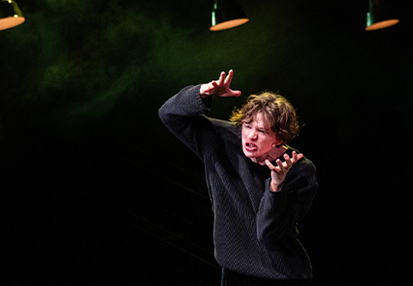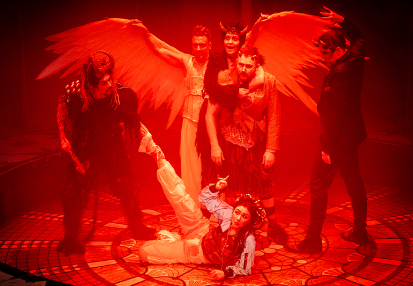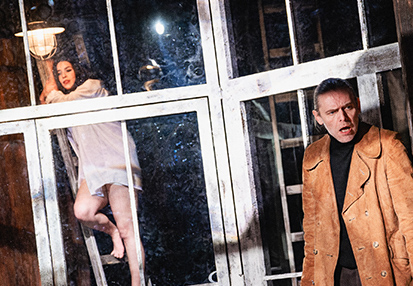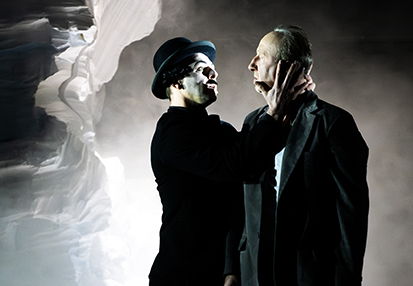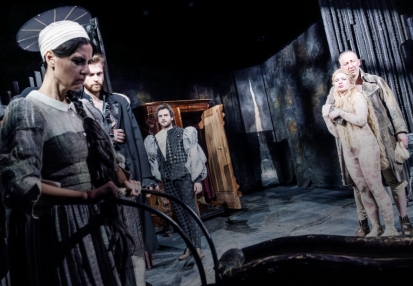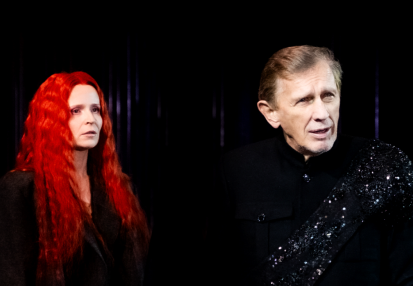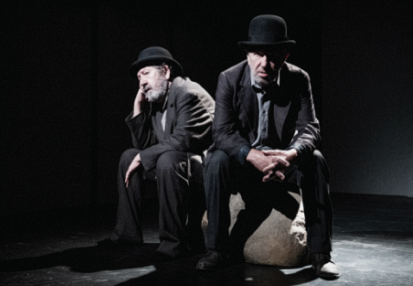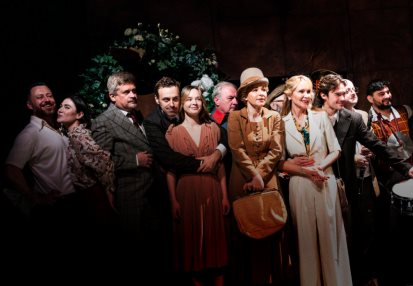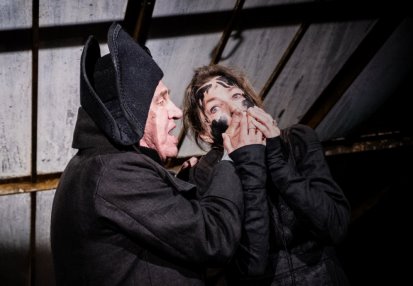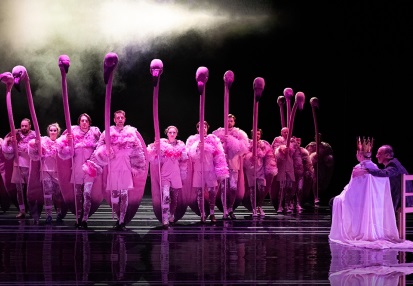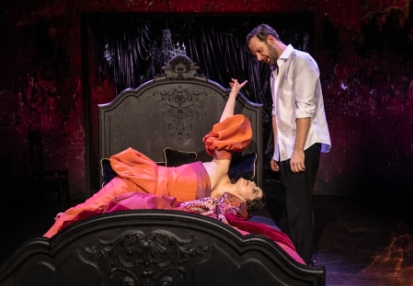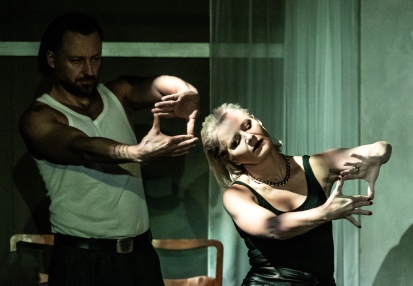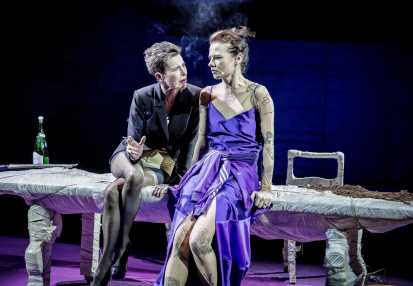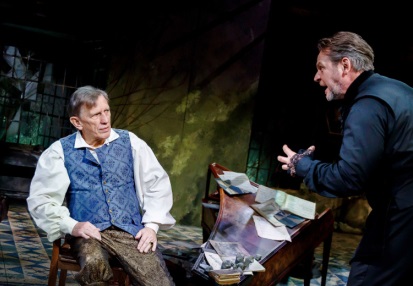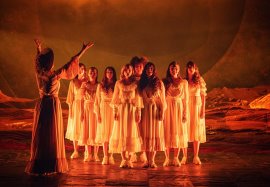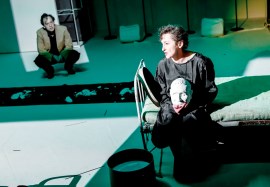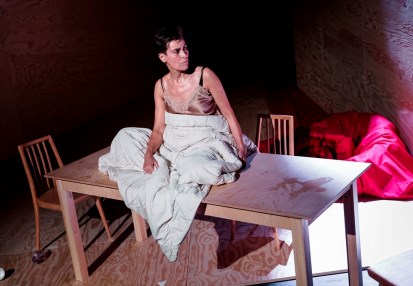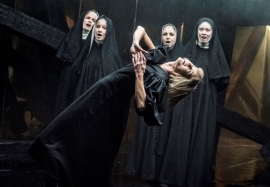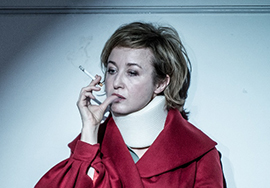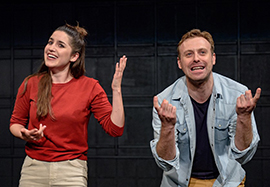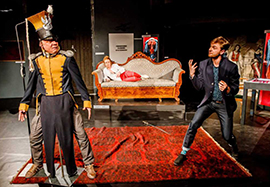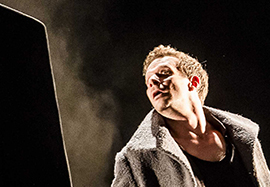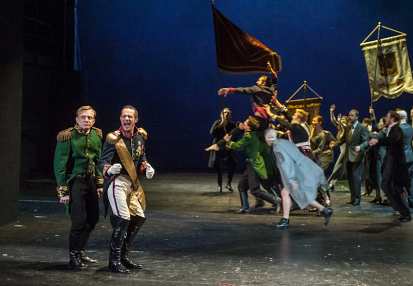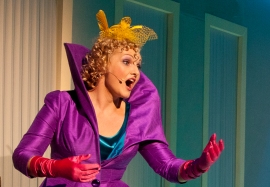Muchy
reżyseria: Erwin Axer
dekoracje i kostiumy: Jan Kosiński
ilustracja muzyczna: Zbigniew Turski
choreografia: Witold Borkowski
Obsada:
Jowisz Jacek Woszczerowicz / Władysław Krasnowiecki
Orestes Tadeusz Łomnicki
Egistos Tadeusz Białoszczyński
Pedagog Konstanty Pągowski
Pierwszy strażnik Zdzisław Szymański
Drugi strażnik Lech Ordon
Arcykapłan Adam Mularczyk
Elektra Zofia Mrozowska
Klitemnestra Ewa Bonacka / Janina Niczewska
Erynia pierwsza Halina Kossobudzka
Młoda kobieta Jolanta Skowrońska
Stara kobieta Barbara Fijewska
Ludzie z tłumu Lucjana Bracka, Helena Jaszczołtowa, Halina Kossobudzka, Maria Pawluśkiewicz, Krystyna Possart, Joanna Walterówna, Barbara Wrzesińska
Mężczyzni z tłumu Szczepan Baczyński, Bolesław Brodelkiewicz, Mieczysław Czechowicz, Marian Friedmann, Franciszek Gołąb, Roman Kamiński, Józef Kondrat, Karol Leszczyński, Juliusz Roland, Wacław Rybczyński, Józef Wasilewski, Wilhelm Wichurski / Wacław Izdebski oraz zespół pomocniczy Teatru Narodowego
Erynie Krystyna Kamieńska, Maria Pawluśkiewicz, Krystyna Possart, Barbara Wrzesińska
Służba i straż pałacowa zespół pomocniczy Teatru Narodowego
Realizatorzy:
- asystenci reżysera: Teresa Dzieduszycka, Franciszek Michalik
- asystent scenografa: Jan Krzewicki
Galeria:
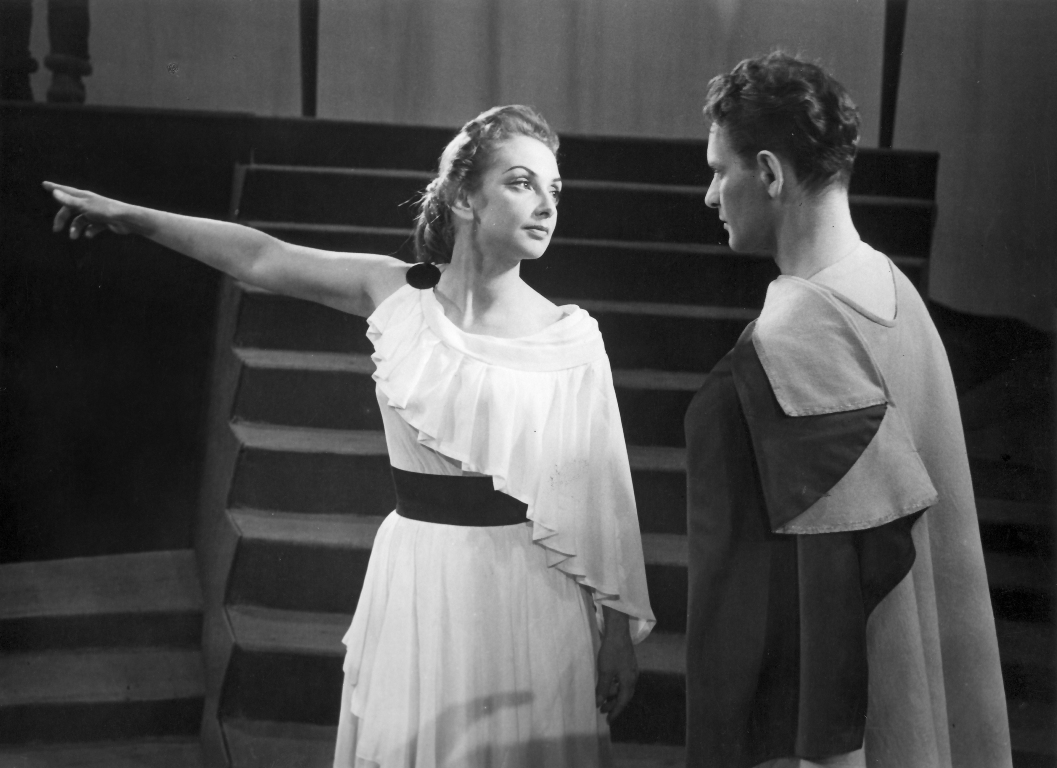
Zofia Mrozowska (Elektra), Tadeusz Łomnicki (Orestes). Fot. Edward Hartwig / Archiwum Artystyczne Teatru Narodowego
Bibliografia:
Karolina Beylin, „Express Wieczorny” 1957, nr 179
Jeremi Czuliński, „Żołnierz Wolności” 1957, nr 198
Ds., „Kobieta i Życie” 1957, nr 27
Elżbieta Fleiszer, „Dialog” 1957, nr 9
August Grodzicki, „Życie Warszawy” 1957, nr 177
Leonia Jabłonkówna, „Teatr i Film” 1957, nr 9
Zofia Karczewska-Markiewicz, „Tygodnik Demokratyczny” 1957, nr 45
Danuta Kępczyńska, „Ekran” 1957, nr 19
Kazimierz Koźniewski, [Koź.] „Przekrój” 1957, nr 646
Jadwiga Kukułczanka, „Świat” 1957, nr 33
Waldemar Lach, „Kierunki” 1957, nr 33
Irena Lewandowska, „Sztandar Młodych” 1957, nr 187
S. Mackiewicz, „Tygodnik Zachodni” 1957, nr 33
Jan Nepomucen Miller, „Głos Pracy” 1957, nr 190
J.J. Piechocki, „Słowo Powszechne” 1957, nr 196
Jerzy Falkowski, Magda Leja, „Walka Młodych” 1957, nr 22
Józef Szczawiński, „Słowo Powszechne” 1957, nr 185
Jan Alfred Szczepański, „Trybuna Ludu” 1957, nr 205
/tf/, „Trybuna Mazowiecka” 1957, nr 232
Stefan Treugutt, „Przegląd Kulturalny” 1957, nr 34
Andrzej Wirth, „Polityka” 1957, nr 26
Andrzej Wirth, „Zwierciadło” 1957, nr 13

